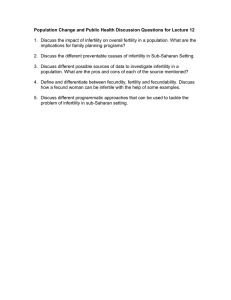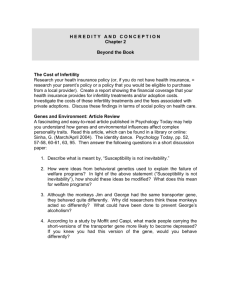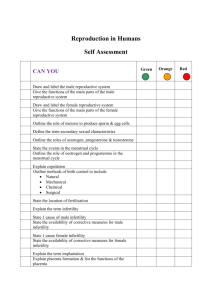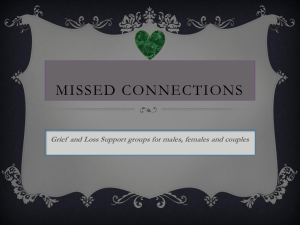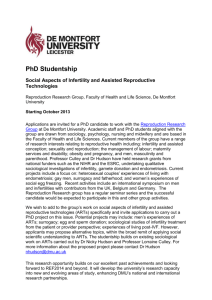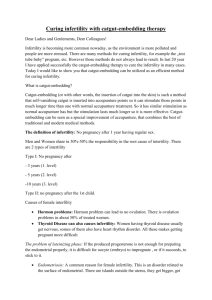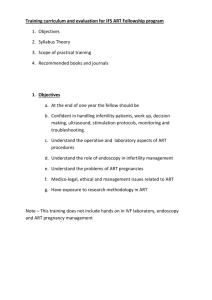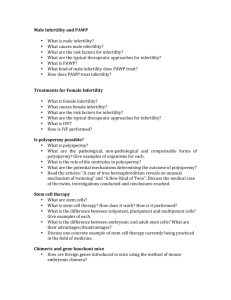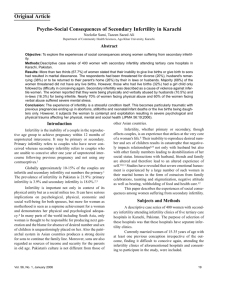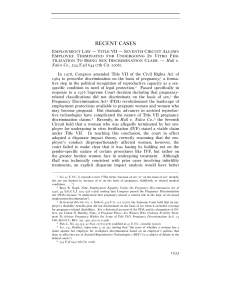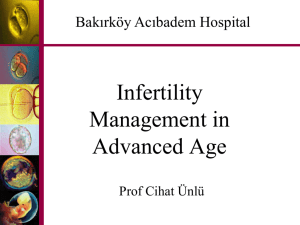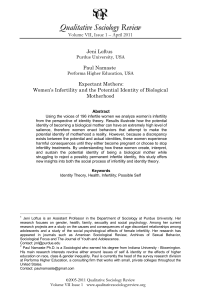Domar – Infertility Stress - Fertility Society of Australia
advertisement
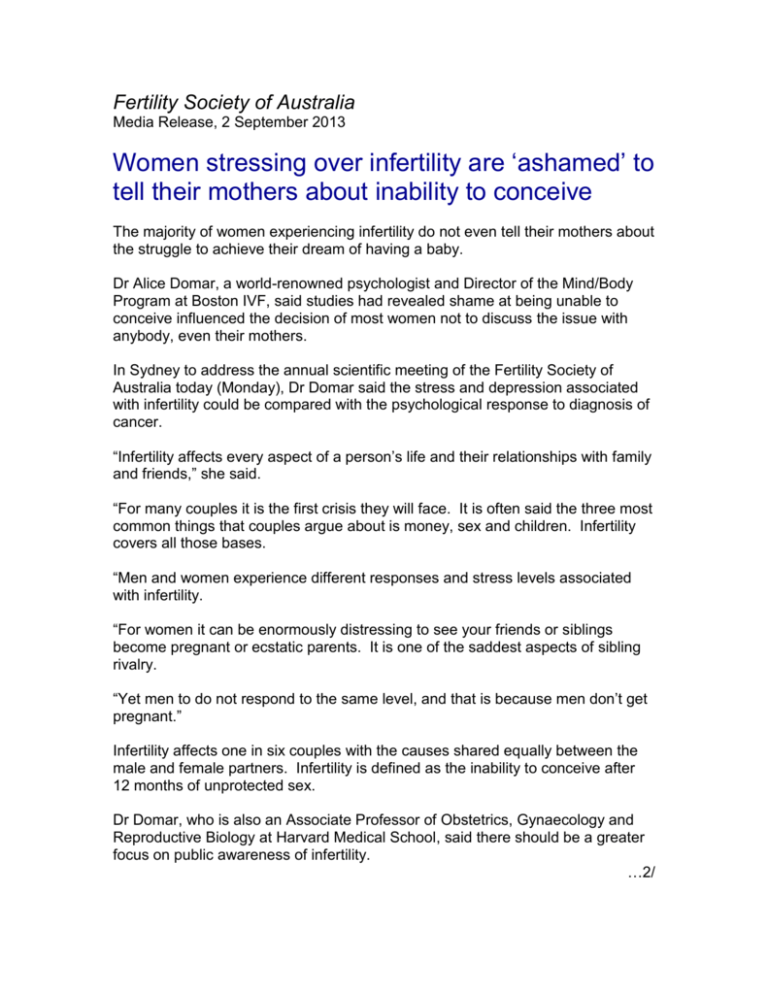
Fertility Society of Australia Media Release, 2 September 2013 Women stressing over infertility are ‘ashamed’ to tell their mothers about inability to conceive The majority of women experiencing infertility do not even tell their mothers about the struggle to achieve their dream of having a baby. Dr Alice Domar, a world-renowned psychologist and Director of the Mind/Body Program at Boston IVF, said studies had revealed shame at being unable to conceive influenced the decision of most women not to discuss the issue with anybody, even their mothers. In Sydney to address the annual scientific meeting of the Fertility Society of Australia today (Monday), Dr Domar said the stress and depression associated with infertility could be compared with the psychological response to diagnosis of cancer. “Infertility affects every aspect of a person’s life and their relationships with family and friends,” she said. “For many couples it is the first crisis they will face. It is often said the three most common things that couples argue about is money, sex and children. Infertility covers all those bases. “Men and women experience different responses and stress levels associated with infertility. “For women it can be enormously distressing to see your friends or siblings become pregnant or ecstatic parents. It is one of the saddest aspects of sibling rivalry. “Yet men to do not respond to the same level, and that is because men don’t get pregnant.” Infertility affects one in six couples with the causes shared equally between the male and female partners. Infertility is defined as the inability to conceive after 12 months of unprotected sex. Dr Domar, who is also an Associate Professor of Obstetrics, Gynaecology and Reproductive Biology at Harvard Medical School, said there should be a greater focus on public awareness of infertility. …2/ -2“Infertility is a disability, in many cases unexplained, and it is very normal to feel anxious and depressed as a result,” she said. There is evidence that depression itself appears to increase the risk of infertility. Women with a history of depression are twice as likely to be diagnosed with infertility compared with women who have no prior history. “Yet women with depressive symptoms are significantly less likely to seek infertility treatment.” Dr Domar’s research focus is on the relationship between stress and infertility and mind/body medicine and strategies to help women in particular to cope with the situation. “Women experiencing infertility should seek social support, make lifestyle changes, learn relaxation techniques and eliminate negative thoughts to cope with the situation,” she said. “Mind/body techniques are not a magic wand that will make a woman pregnant. But they are an excellent, effective way to help a woman regain control of her life, cope with infertility in a much more positive way, and prepare to make choices that will contribute to her happiness and good health for the rest of her life.” Dr Domar said the Mind/Body Program at Boston IVF involved group sessions with peer support, relaxation techniques, cognitive strategies to manage feelings of shame, anger and isolation and lifestyle modifications. “Among participants there is a significant decrease in psychological symptoms such as depression, anxiety and hostility, and a decrease in insomnia and headaches,” she explained. “There is also a consistent and significant increase in pregnancy rates. In our studies of mind/body subjects compared to a control group, the take home baby rate is 55 per cent compared with 20 per cent.” World leaders in assisted reproduction are attending the Fertility Society of Australia meeting at the Hilton Hotel in Sydney to report on latest research findings and treatments. The meeting runs from today to Wednesday. Interview: Dr Alice Domar is available for interview. To arrange, please contact Trevor Gill, FSA Media Relations, on 0418 821948
